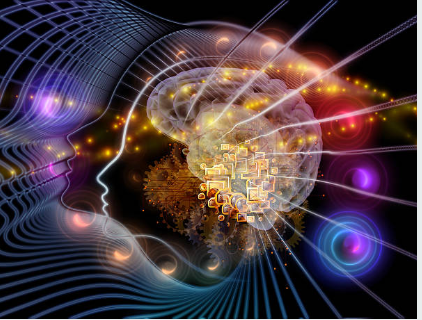What is Mental Health ? What people believe, feel, and do to achieve mental and physical balance.
Learn about the power of mental health and how to cope in your daily life.

Selfpause Affirmation App
Download the app to get 1,000’s of affirmation meditations and everything you need to write, record and listen to your own.
Mental health is a state of inner balance that includes our social, emotional, and cognitive functions. It determines how we handle stress, make decisions, and interact with others. It is not always easy to maintain equilibrium when faced with challenging life situations. However, there are several things you can do to improve your mental health.
Mental health is a dynamic state of internal equilibrium

Mental health is a state of balance within an individual that permits them to maximize their ability to function effectively within society. Among other things, mental health enables individuals to identify and manage their emotions appropriately and cope with adverse events in life. It also promotes healthy relationships between the mind and body. Impaired mental health can cause physical and emotional pain.
A large proportion of the population is at risk of experiencing mental health issues, with approximately 15% of the population suffering from a diagnosable mental illness. However, many people without a diagnosable illness still experience symptoms of stress, depression, and loneliness that can affect their quality of life. These individuals also tend to have poor physical health outcomes, and poor healthcare utilization.
A growing body of evidence supports the effectiveness of mental health interventions. It is important to understand that a poor mental state can result in other physical or mental problems, which can impair a person’s performance. For example, poor mental health can affect academic achievement, professional development, and relationships. Furthermore, poor mental health can lead to poor decision-making, low concentration, and sleep disturbance. Despite the evidence, many individuals do not seek help when they are experiencing mental health problems.
A recent study of university students in Malaysia showed that poor mental health is a major concern. The Malaysian government has taken steps to address the problem, but it still remains a challenge. It is further complicated by negative attitudes toward mental health. Research has shown that resilient and self-compassion are important components of mental health.
It is difficult to reconcile with challenging life situations

Well-being is an important aspect of mental health and there are many challenging life situations that can have negative effects on it. For example, most people would consider it mentally unhealthy for someone to kill several people in a war action. Similarly, they would consider it mentally unhealthy for someone to become desperate and unemployed when their job offers few opportunities.
It involves cognitive and social skills

Besides the well-being of the body, mental health involves cognitive and social skills, such as empathy and emotion recognition. These skills can be affected by social adversities and protective factors. Psycho-physical and cognitive factors such as antecedents of mental disorders and family-support networks also play a role in a person’s life.
Mental health includes cognitive and social skills, which are important for a person to function well in the world. These skills are necessary for coping with challenges in daily life, and can positively affect a person’s quality of life. In general, social support and group membership contribute to a person’s resiliency, whereas social isolation can cause emotional suffering and mental health problems. Social processes are complex and include personal, relational, and contextual factors. Social cognition skills help a person process social cues and integrate them into their thoughts and actions.
Social skills help individuals communicate effectively with others and learn how to interact successfully. According to the Albert Ellis Institute, social skills include the ability to identify emotional cues, facilitate interactions, and build satisfying relationships. These skills can be learned and are crucial to a person’s mental health. Developing these skills early on will help a person to cope with various problems and lead a more satisfying life.
Moreover, mental health can be promoted, protected, and restored through prevention and promotion initiatives. These strategies should be designed to reduce individual and social risks and create supportive environments. These interventions may target an individual, a specific group, or an entire population. Often, these initiatives require action outside the health sector. Education, justice, environment, housing, and welfare sectors should be involved in promoting good mental health. However, the health sector can also contribute by integrating prevention efforts within health services and supporting multi-sector collaborations.
It involves medicines

Mental health involves using medicines to treat a variety of mental conditions. Some medications are prescribed to help with depression, while others are used to treat bipolar disorder. Psychotherapy can also help people manage their disorders. Getting a proper diagnosis is the first step to proper treatment. Talk to your healthcare provider to determine what type of medication would be right for you.
There are various types of medicines that are used for mental illnesses, and each of these has its own benefits and side effects. Your primary care provider can prescribe the appropriate medication for you, but it’s important to keep in mind that different medicines can affect different people differently, so you may need to try a variety of different medications to find the right one.
It involves talk therapy

Talk therapy is a treatment method that is used to improve a person’s mental health. There are several types of talk therapy, each of which involves a conversation between a professional and the patient. Each type focuses on a different area of the patient’s life. Some practitioners are trained in several types of talk therapy and use different techniques to help a patient. Talk therapy is also an effective way to identify and change patterns in a person’s thinking and behavior.
Talk therapy is commonly used to treat a wide variety of mental health conditions. However, many individuals who do not have a mental health diagnosis can also benefit from it. If you think that talk therapy is right for you, contact a healthcare professional for a consultation. Typically, talk therapy is used to help people deal with a mental health concern, a difficult relationship, or a life transition. However, it is important to be aware of the differences between different types of therapy and whether or not you need a specific type of therapy for a particular problem.
Talking therapy may also be referred to as counselling or psychotherapy. It should provide a safe and confidential environment for people to discuss life issues with a trained therapist. It can be conducted one-on-one, in a group, online, or over the phone. Depending on the severity of the problem, talking therapies may be combined with other treatments, including medication.
Cognitive behavioral therapy is a type of talk therapy that focuses on changing negative thinking patterns. It helps individuals to understand how their behavior affects their feelings and interactions. It is a structured form of therapy that lasts three to four months. This type of therapy works best for individuals who want to change their behaviors and find a positive way to deal with difficult circumstances.
Our Top FAQ's
Mental health refers to an individual’s overall psychological well-being and the ability to cope with the challenges of life. It includes emotions, thoughts, and behaviors, and can be influenced by a variety of factors such as genetics, environment, and life experiences.
Some common signs of mental health issues include changes in mood, sleep patterns, appetite, energy levels, and concentration; difficulty coping with daily tasks and activities; and a loss of interest in things that used to be enjoyable. Other potential signs of mental health issues include feelings of hopelessness or worthlessness, thoughts of self-harm or suicide, and difficulty managing emotions or controlling behavior.
There are many strategies that people can use to improve their mental health, including exercising regularly, eating a healthy diet, getting enough sleep, practicing relaxation techniques like meditation or deep breathing, and seeking social support from friends and family. It can also be helpful to engage in activities that bring joy and meaning, such as hobbies or volunteering, and to develop healthy coping mechanisms for managing stress and difficult emotions.
If mental health issues are not addressed, they can lead to a range of negative consequences such as decreased productivity, strained relationships, and a decrease in overall quality of life. In severe cases, untreated mental health issues can lead to serious health problems or even death.
There are many resources available for individuals seeking support for their mental health, including therapy or counseling from a mental health professional, support groups, and online resources such as mental health apps or websites. In addition, many communities have mental health clinics or organizations that offer services such as crisis hotlines, counseling, and support groups. It’s important to seek help if you are struggling with your mental health or if you are concerned about a loved one.
